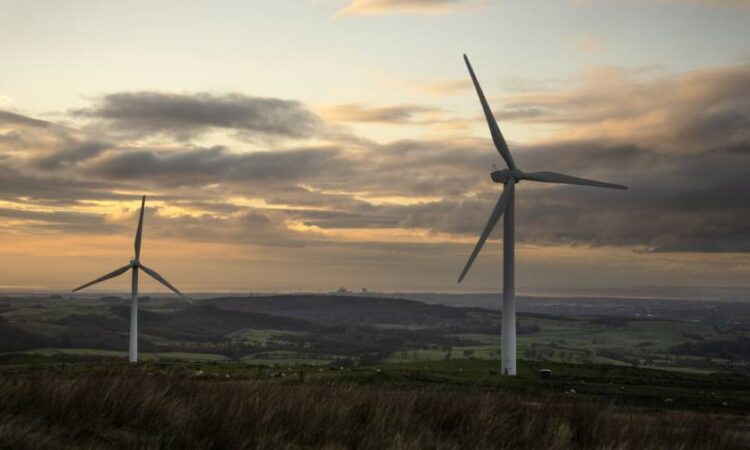
Receive free UK energy updates
We’ll send you a myFT Daily Digest email rounding up the latest UK energy news every morning.
Ministers are set to loosen planning restrictions on onshore wind farms in England, ending a de facto ban first introduced by former prime minister David Cameron nearly a decade ago.
Government figures said that a written ministerial statement would be published on Tuesday setting out a more relaxed planning approach for onshore turbines.
It follows a push from Tory MPs including Alok Sharma, who was president of COP26, the international climate summit held in Glasgow two years ago, and former prime minister Liz Truss.
Proponents of onshore wind argue it is among the cheapest forms of renewable energy, would boost energy security and help the UK meet its legally binding target of net zero emissions by 2050.
Under the current rules, an onshore wind farm in England can be blocked if there is just one single local protester opposed to the project. The new rules are expected to change that.
Whether the amendment goes far enough to satisfy Tory rebels and industry remains to be seen, however, with critics warning the technology would still face more planning restrictions than others.
“It’s going to be very important to see the detail of what the government puts forward in terms of its ministerial statement,” Sharma told BBC Radio 4’s Today programme.
“The current situation we have is that just the one objection can prevent a wind farm . . . I don’t think it’s a sensible way for a planning system to operate.”
The government’s move comes after Sharma proposed an amendment to its energy bill, supported by about 20 Tory MPs including Truss. “We need a sensible and balanced approach to this,” he added.
Ministers will say they have been consulting on the changes for several months at the behest of Rishi Sunak, prime minister. Yet the government has also wanted to neutralise the potential backbench rebellion by Sharma and others.
Cameron changed the planning system to thwart onshore wind farms soon after winning the 2015 general election. Only two new turbines were built in England last year, according to trade body Renewable UK.
He also excluded the technology from the government’s system of subsidies for low-carbon electricity, although it was allowed back in last year, with several farms in Scotland winning contracts.
Scores of Tory MPs — and swaths of the party membership — are opposed to the technology because they fear a backlash from local communities concerned about the impact of wind turbines on rural landscapes.
In an effort to bolster support, the government is also exploring ways to make sure people living near wind turbines benefit more directly from them, for example through payments for community facilities or electricity bill discounts.
Downing Street said on Monday that the government would support wind farms where there was “local support”, insisting that applications would still be decided at a local level.
“We have consulted on technical changes to the National Planning Policy Framework that would help supportive communities take forward onshore wind projects,” a spokesperson said. “We are due to set out the responses to those consultations shortly.”






